I suppose there is no sweeter joy for anyone in life than proving doubters and critics wrong and forcing them to eat their words. The more emphatically you do it, the better the feeling you get. These players were doubted, their desire, ability and commitment questioned and harsh criticism was levelled at them by many. So much so, in fact, it created false notions amongst the footballing fraternity. Often, they were spurned by their very own fans and supporters.But they got back at the critics. They dispelled all the false notions planted in people’s minds and played their way into everyone’s praises. Managers relented and accepted their errors in judgement. Fans had to applaud their comebacks while fellow players were forced to sit up and take notice.Here's a look at 6 players who successfully answered critics and eliminated false notions about themselves.
#1 David Villa was sold by Barcelona thinking he wasn\'t good enough
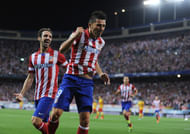
David Villa was going great guns with Barcelona in his first 18 months in Catalunya, flourishing in partnership with Pedro and Leo Messi. Although being played wider than he liked, he was still scoring and assisting aplenty. But disaster struck during the Club World Cup in December 2011 as he broke his foot and was ruled out for the season.
He failed to recover in time forEuro 2012, and when he did make a comeback in the 12-13 season for Barca, his role had considerably diminished, with him having to play second fiddle to Fabregas, Iniesta and Alexis. Though he was producing the goods, he was left out of the squad too frequently, which wasnt really fair to a world-class player like him.
Barcelona offloaded him to Atletico Madrid for 5 million, indicating that they didnt think he was a player good enough for them. His Indian Summer with Atletico last season proved beyond doubt their folly as his experience and nous up-front was very useful in their victorious La Liga campaign and in their run to the Champions League final.
The Catalans did not just sell a world-class forward who couldve scored a lot more goals for them; they strengthened their rivals in doing so.
#2 Branislav Ivanovic wasn\'t good enough to play for Chelsea
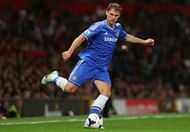
Ivanovic was bought by Avram Grant in January 2008 having come into the spotlight during his stint with Lokomotiv Moscow as a no-nonsense centre-back. With Chelsea in the mix for the treble, however, Grant did not change his lineups too much and Ivanovic failed to make an appearance under him.
He recorded only sporadic starts and appearances for the Blues in his second season and was consigned to the bench for a lengthy spell after a bad performance against Arsenal. Critics remarked that he was too ponderous for the league and could not compete with Alex and Ricardo Carvalho for a starting spot.
Towards the end of the season, under Guus Hiddink, Ivanovic revitalized his career at the right-back spot, scoring twice in Chelsea’s 3-1 victory at Anfield off corners. He carved a spot for himself under Carlo Ancelotti as the incumbent right-back, beating away competition from the faster and more attack-minded Bosingwa.
Critics who believed he wasn’t cut out for the Premier League are now singing praises of him on being the Premier League’s most reliable player.
#3 Javier Zanetti wasn\'t good enough for Argentina at World Cups
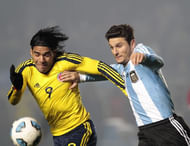
Zanetti holds Argentina’s record for most international appearances. Dig deeper, however, and you find him missing from two of their biggest disappointments in World Cup history at a time when Il Capitano was still excelling for Internazionale at the club level.
For reasons inexplicable to the average fan and media critic, Jose Pekerman picked West Ham’s Lionel Scaloni for the 2006 World Cup squad despite consistently picking Zanetti as his first-choice right back for the entire qualifying campaign.
Post Argentina being knocked out in the quarter-final on penalties against Germany, new coach Basile brought him back into the setup and he was named vice-captain for the Copa America 2007. Under Diego Maradona too, Zanetti regularly featured in qualifying matches for the 2010 World Cup.
But Maradona always had plans for an extremely attacking lineup, and he left Zanetti out of the squad and picked unknown Ariel Garce as the only specialist right back in the squad, playing Jonas Gutierrez at the spot in all matches. This, despite Zanetti being an integral part of Mourinho’s treble-winning Inter squad.
Common sense prevailed after Maradona’s sacking and Zanetti was again reintroduced into the international set up for one last bow, playing in the Copa America 2011 before announcing his international retirement. A case of consecutive follies by people at the helm of matters.
#4 AC Milan let Andrea Pirlo leave thinking he was past his prime
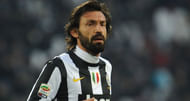
How Milan have missed him in the centre of the park these past four seasons! He was the player who kept them ticking all the while, when they’d lost Shevchenko and Kaka in the previous decade. Although it was Ibrahimovic’s arrival in 2010 that led them to a Serie A title in ‘10-11, if it weren’t for Pirlo, they’d never have had a solid foundation to build from in midfield.
Besides, Pirlo was never a player to rely overly on his physical attributes, so the notion of him getting old and out of fashion was based on the wrong premise to begin with. And so it turned out as Pirlo joined arch-rivals Juve on a free transfer in 2011 and has since led them to three Serie A titles, with one invincible season (2011-12).
He’s won Serie A Player of the Year for all three seasons while Milan have had to make do with players like Nocerino and Poli among others. Massimiliano Allegri would be glad to finally have him in his squad at The Old Lady, having once dearly repented for his folly.
#5 Lionel Messi doesn\'t play at his best for Argentina
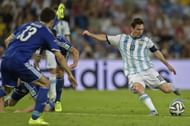
It seems inconceivable that a player who scored eight goals in the 2014 World Cup qualifying campaign could be thought of as playing below his level for Argentina, yet, that was the kind of criticism that was levelled at Lionel Messi going into Brazil.
One of the reasons Messi was viewed in this light is the fact that Messi hadn’t scored in the 2010 World Cup and was a part of the lineup that conceded four goals against Germany in the 2010 quarterfinal without reply. It was thought that Messi could not play near his best without the support of the Barcelona midfield.
Messi proceeded to dismantle all such doubts and notions on the biggest stage, beginning with the very first game against Bosnia in the group stages, when he scored after a characteristic mazy dribble through their defense. He totalled four goals and an assist and was easily Argentina’s best attacking threat all through their run to the final, receiving the Golden Ball for his efforts.
Not even the most one-eyed critic would agree with the notion of Messi being below-par for Argentina anymore.
#6 Ronaldo\'s career was finished after he suffered cruciate ligament injuries
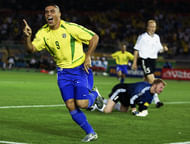
When Ronaldo went down with a knee injury in November 1999, and again in April 2000, he was only given a 50% chance of ever being able to play football again after surgery. Football fans all over the globe mourned his injury, and critics believed he would be a shadow of himself if ever he came back to competitive football.
Ronaldo set about proving them wrong. He prepared rigorously for the 2002 World Cup and was picked (somewhat surprisingly to many) in the final 23-man squad. At the tournament, he announced his return to football by winning the Golden Boot with a stunning tally of eight goals, including a brace against Germany in the final and the winning goal against Turkey in the semifinal.
In doing so, he banished memories of Paris 1998, silenced the critics once and for all, and gave millions of fans a glimpse of what they had been praying for. He collected the World Player of the Year award for the third time and etched his name among the legends of the game. A true phenomenon.
